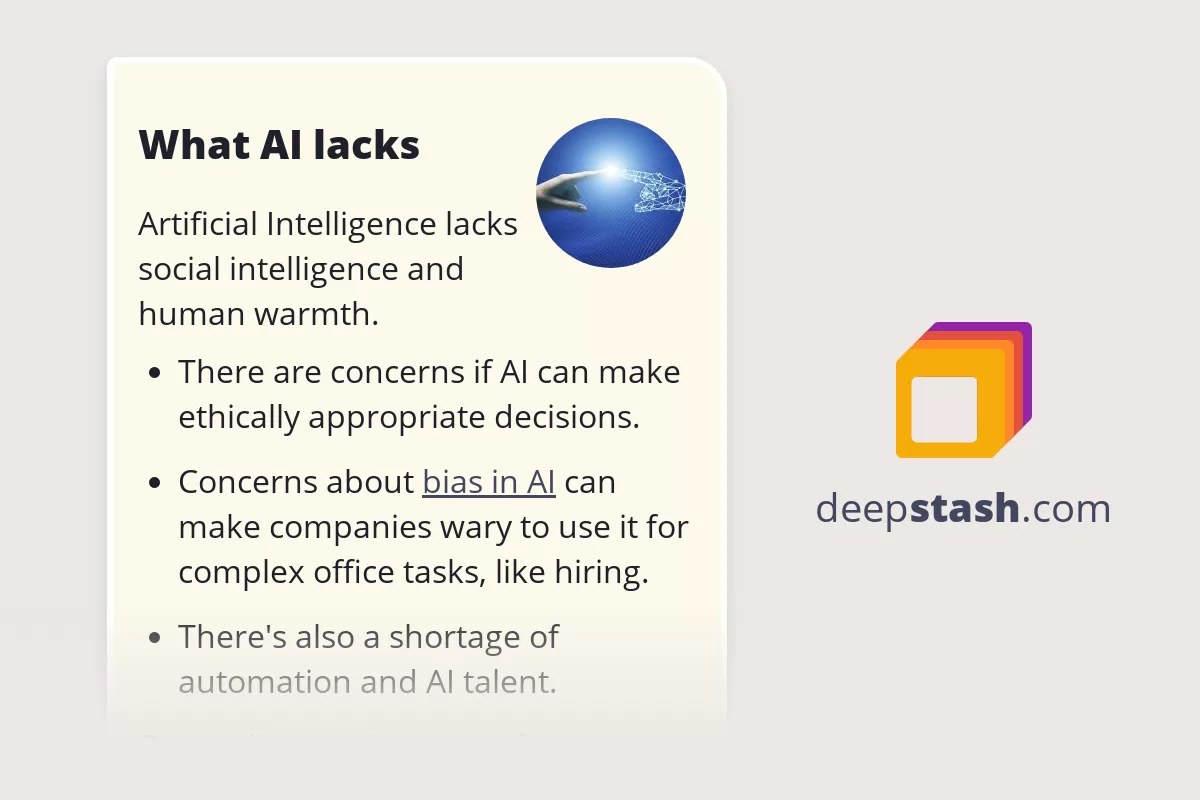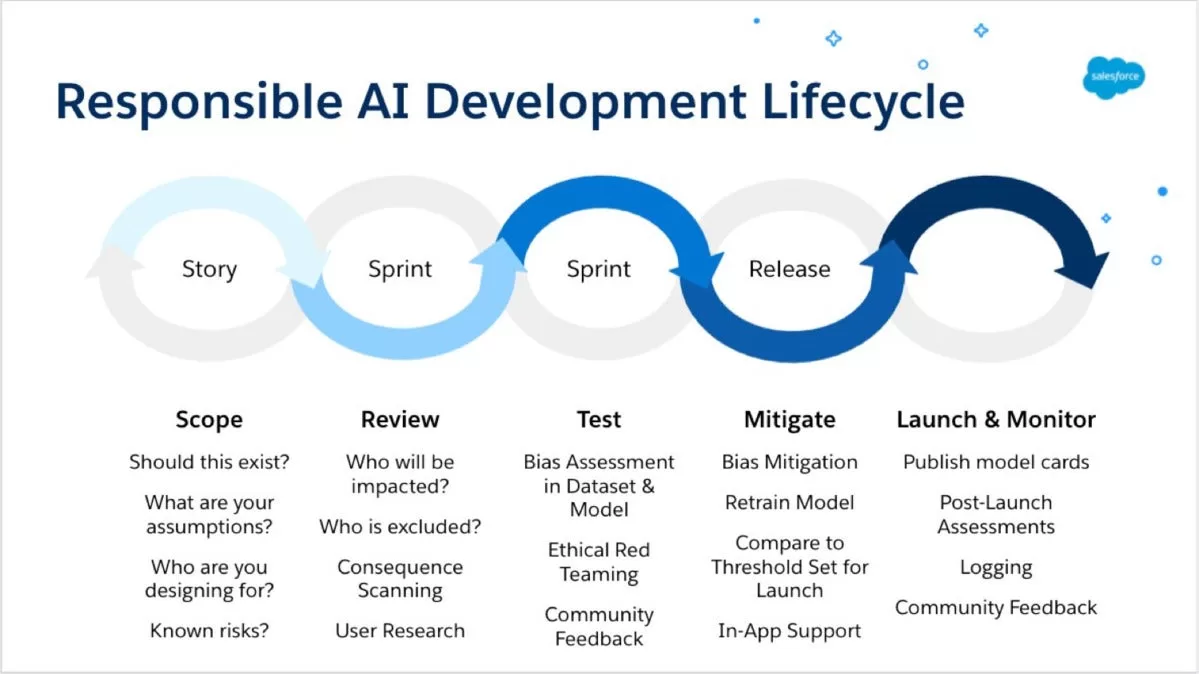The internet as we know it is changing. New innovative tools are being invented every day to make our lives easier, help us work more efficiently, and increase organizational revenue. Among these tools are artificial intelligence solutions like OpenAI’s ChatGPT and the forthcoming Bard from Google. These AI tools will have sweeping impacts across all industries, including advertising. So to remain relevant as a marketing professional or business owner, it’s essential to understand how to incorporate AI in marketing campaigns.
AI technology has been used for years to supplement human efforts in data-intensive tasks, such as automating email promotions, consumer analysis, and market research. However, AI’s capabilities are swiftly growing, revealing opportunities for use in other areas that traditionally require manual work.
With that said, this article will serve as an overview of AI’s use in marketing, including its current utilization, downsides, potential, and how you can use it responsibly in your marketing campaigns.
The Current State of AI in Marketing

AI powers several tools involved in digital marketing, including data collection and consumer behavioral analysis. To this end, social media platforms like Facebook and Instagram integrate AI into their advertising services, showing brand advertisements to a particular subset of people that’s based on a set of parameters.
The results of these campaigns can then further be processed by AI tools to identify which kinds of consumers are most likely to click on subsequent advertisements, allowing brands to constantly adjust their campaigns for a better return on investment.
Brands also use AI tools in email marketing. For example, AI can connect a customer’s email with their purchase history and automatically send them emails advertising a specific product they might like. And if a customer emails the company, an AI tool can examine the message using natural language processing to determine what the customer needs and then direct them to the appropriate department.
You can use a similar process with SMS marketing as well. AI can create marketing texts with a more personal tone and individually message customers to promote a particular product/event. This more personalized approach can be incredibly powerful when used appropriately.
On websites, brands often leverage AI to implement customer service chatbots. These chatbots can answer basic customer inquiries, such as the company’s provided services or return policies. If the AI tool can’t fully address a customer’s issue, it connects the client with a live customer service agent or initiates an email between the customer and the company.
Next, one of the most prevalent areas where brands will leverage AI is market research and competitor analysis. Rather than asking someone to manually look through mountains of user purchase history, brands can take advantage of the power of machine learning tools to analyze enormous data sets in a fraction of the time to determine what demographics are most likely to purchase what products. As mentioned, it also allows brands to analyze their own marketing efforts to continually fine-tune their campaigns.
And finally, now that AI is getting better at developing written content, many brands leverage it to create entire blog posts and emails to market to their customers. However, whereas data sets are objective, numerical information, human speech is nuanced and subjective. As a result, AI likely won’t replace human copywriters anytime soon.
With that in mind, let’s take a look at what else AI is missing and what keeps it from being the ultimate tool for marketers.
What AI Is Missing

Despite all that AI can do, there are still areas where we’ve yet to see AI make serious waves.
Let’s look first at ChatGPT, the tool that rose to fame with its ability to craft believable prose in varying tones. It’s known to draft poetry, create short blog posts, and answer questions using the massive amount of data it’s fed — mainly from the internet and through e-books.
While there’s no doubt that ChatGPT is an amazing step in the direction of generative AI, it has some severe limitations. For one, it can’t fact-check itself, and its only source of information is the data it reads. Several companies, including Men’s Journal and CNET, have used ChatGPT to generate content for their websites, only to find that most contained serious errors.
Google’s response to ChatGPT, a similar tool named Bard, also spouted off inaccuracies when answering a question concerning the James Webb Space Telescope. Even worse, it did so during a live advertising demo, resulting in an overnight drop in Alphabet’s share value to the tune of $100 billion.
A recent survey of Americans conducted by MITRE-The Harris Poll is of particular interest when determining how much AI should be relied upon: Over 80% of Americans and 91% of tech experts believe that the government should regulate AI. Other findings from the poll indicated that 75% of Americans are concerned about the potential use of AI-generated content.
While we can see where it would be tempting to use AI for content generation activities, such as creating written content, the risk of errors is extremely high. Google’s Bard, Men’s Journal, and CNet have already displayed the dangers that exist.
When it comes to more objective use like marketing analysis and consumer behavior prediction, AI is still not entirely self-sufficient. For example, you might look at a spreadsheet of user purchases and browsing history and think it makes complete sense. However, computers read information in very specific ways that look obtuse and confusing to human readers. Therefore, before machine learning algorithms can derive any meaningful conclusions from the data, it must first be “cleaned” by human users and converted into a format that a computer can understand.
Top Marketing Tools for AI
While AI may not be reliable in some areas, it’s proven vital in others. Let’s look at the top AI tools no marketer can afford to be without.
Semrush
Semrush is a powerful SEO tool with multiple features critical to companies seeking to increase their market reach. It’s best known for its keyword research feature, which identifies keywords that will help you bring traffic to your website. However, it also allows you to perform market research on your competitors, such as the keywords they rank for and their backlink profiles. It can also recommend content topics for blogs and videos that can bring more relevant leads to your business.
Surfer SEO
Surfer SEO is a popular AI tool that helps optimize content using natural language processing. Given a specific topic, the tool will suggest keywords, article length, and the number of images to contain in your content. The tool then gives your content a grade on a scale of 100, and if you get a score of around 75 or above, you can rest easy knowing your content is optimized for readers and search engines.
Brand24
Brand24 is a social listening platform that monitors all corners of the internet, including social media, news sites, blogs, and reviews for mentions of a company’s name. You can use the software to discover when there’s a positive or negative comment about your company and respond to it quickly and efficiently.
Chatfuel
Chatfuel is an AI-powered chatbot that assists in customer service for your company. With Chatfuel, you can establish a set of FAQs and their respective answers. If a customer starts a conversation with the Chatfuel bot, it will attempt to help them, given the parameters you’ve established. If Chatfuel can’t resolve a customer’s question, it passes the inquiry on to the company to address.
Using AI in Marketing Responsibly

While AI is certainly beneficial, it’s essential to use it responsibly. The most common concerns regarding AI are consumer privacy and data inaccuracy.
First of all, it’s essential to understand how the marketing tools you use assimilate information about your customers, especially if they involve AI. If you’re not careful, you might find yourself in violation of privacy legislation that holds brands responsible for the misuse of personal data.
And when it comes to producing content for the general public, marketers are responsible for ensuring the tools they use generate factual and accurate content. Inaccurate information can severely affect the customer and the company’s reputation. If you use generative AI to produce content, you must fact-check it before publishing and ensure to cite any sources properly.
Remember that AI is only as good as the information that it has. If it has incomplete data, it has no way of knowing if a statement or claim is wrong. Furthermore, an analysis based on incorrect data will lead to false insights concerning marketing campaigns.
AI Is a Valuable Tool, but Maintain Awareness of Its Limitations
Over the past few decades, innovations in AI, machine learning, and big data have provided marketers with some potent tools. These tools allow a better understanding of consumer behavior, competitor analysis, and customer interactions.
However, AI tools are not perfect. The risk of mistakes and misinformation is still high, especially as many tools are still in their infancy. So when using AI in marketing, ensure you fully understand its constraints before integrating it into your advertising processes.

